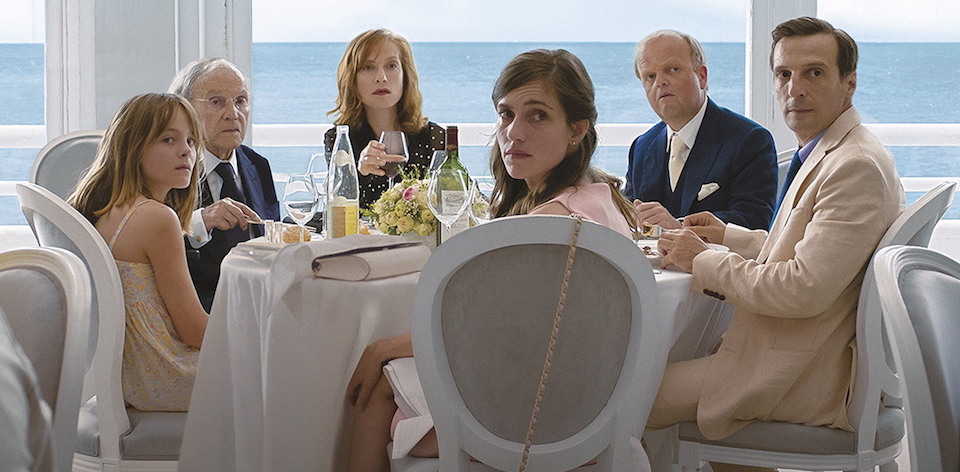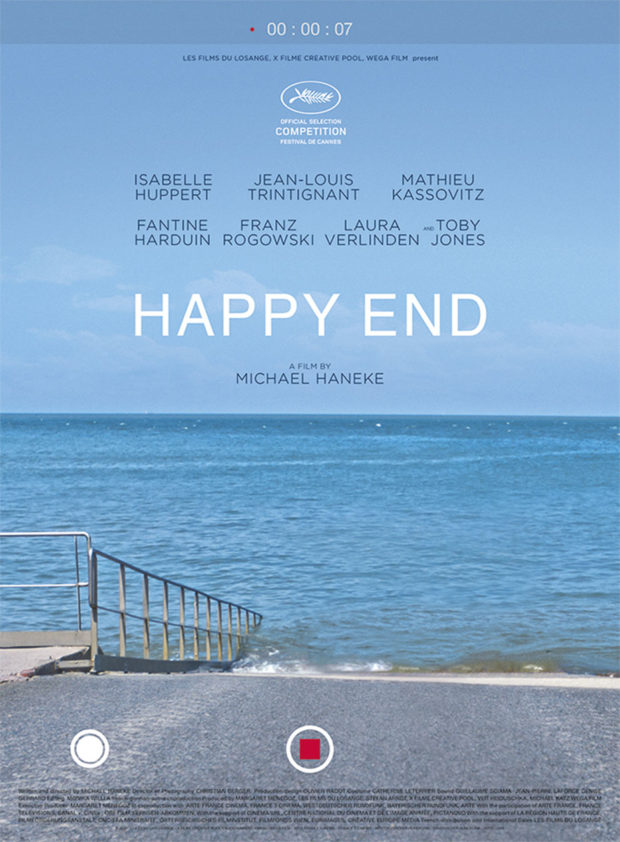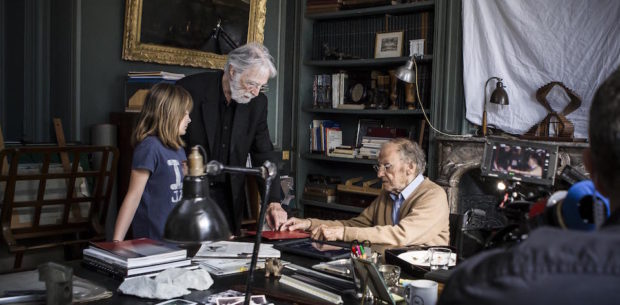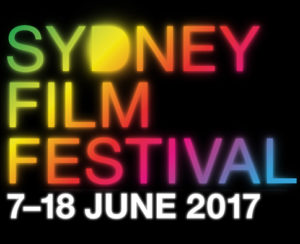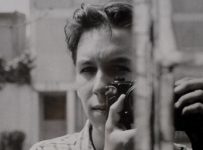Even if you only have a passing familiarity with the work of Austrian filmmaker Michael Haneke, you’ll probably recognise the title of this film as a wee bit ironic. Then again, Haneke is someone who regularly likes to shock his audiences, and with HAPPY END he brings some closure to one of the thematic threads from Amour. Well, it’s a kind of resolution.
On the surface, Haneke’s latest film is about the wealthy Laurent family living in Calais. Despite being close to the Jungle migrant camp, the film focuses on the crises within the rich clan. Their lush lifestyle betrays a myriad of issues. Anne Laurent (Isabelle Huppert) is besieged by business problems and a construction site accident, while Thomas (Mathieu Kassovitz) is engaged in an escalating affair. Patriarch Georges (Jean-Louis Trintignant) is physically fit but wants to end his life, while the 13-year-old Eve (Fantine Harduin) is a living avatar of the family’s general malaise.
Haneke’s signature move is setting up long observational moments, establishing a kind of normality before shattering it. In a long and unnerving opening, reminiscent of Cache (Hidden), we view Eve’s mother through the lens of a phone’s livestream. The perfunctory text descriptions are indicative of Eve’s filtered outlook. Immediately after this, another long take of a construction site settles us into complacency, at least until a retaining wall silently collapses with fatal results. The scene is almost emblematic of the gradual decay that is under the surface of the whole family.
Shifting focus from one family member to another, Haneke’s approach might keep us constantly on the edge of foreboding, but still manages to jump out at us from plain sight. Later in the film, we observe one of the characters visit an apartment from across the courtyard, only to be beaten severely. Haneke has often been detached from his subjects using a similar method, and with this film it’s cranked up a few notches. The difference here is that Haneke is allowing us to drift into the same melancholy, giving his audience greater time to absorb these out of context life blips.
As HAPPY END works its way towards its version of the title, elements of absurdist comedy creep into the narrative, including a wonderful climactic moment at a seaside reception. We also witness Eve and her grandfather Georges come to a kind of fatalistic understanding, the crux of Haneke’s film and an indicator of the writer/director’s inky black sense of humour. This may not be Haneke’s most shocking, or even his most satirical to date, but it’s still a showcase of a master still working at the top of his game after four decades.
HAPPY END is playing in competition at the Sydney Film Festival 2017.

